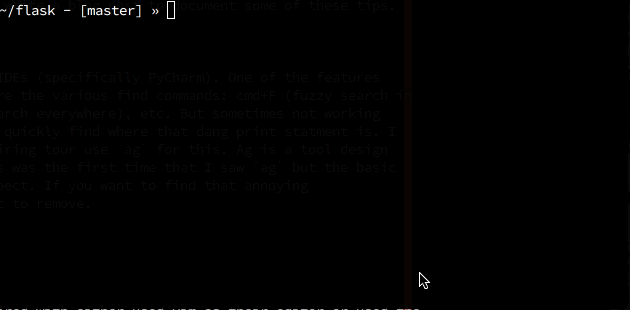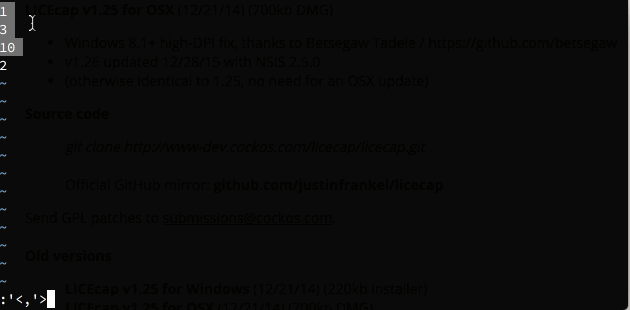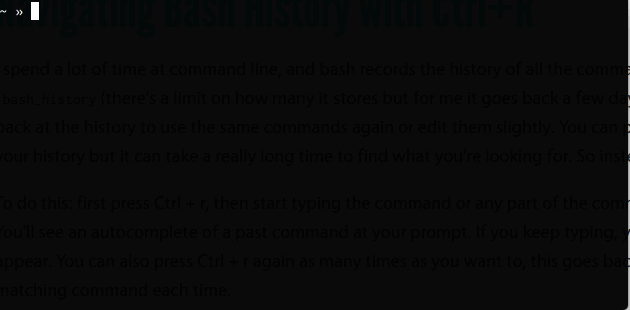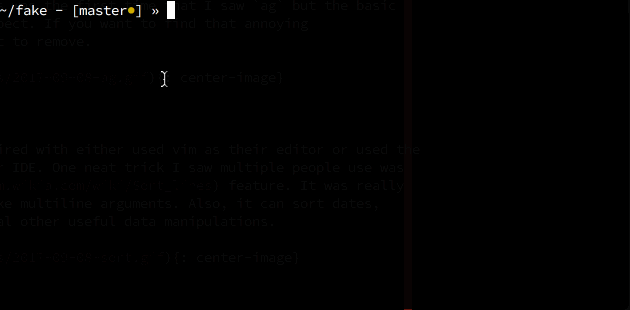I just finished my first week of the pairing tour. Initially, I wasn't exactly sure what to expect. It seemed like it would be difficult to contribute to a project that you didn't regularly work on, especially if the team was using a language or framework you weren't familiar with. However, overall it's been a really good experience. One of the things that I've enjoyed is getting a chance to see to see other developers' workflows. By watching others work, I learned a ton of neat little productively hacks. I thought I'd write a blog post to document some of the things that I learned, so that I don't forget and can hopefully integrate into my own workflow.
The Silver Searcher (ag)
I like the JetBrains IDEs (specifically PyCharm). The various search
features like Cmd-F (fuzzy search in path), and Shift-Shift (fuzzy search
everywhere), are excellent and I use these all of the time. But sometimes you're
not working with an IDE and just want to quickly find where that darn print
statement that you accidentally left behind is. In this case the Silver
Searcher or ag is what you are
looking for. I saw multiple people on my pairing tour using ag to quickly
search through large codebases.

Sorting with vim
Most of the people that I paired with either used vim as their editor or used the vim key bindings within their IDE. One neat trick I saw multiple people use was vim's sort lines feature. This provides a nice way to order things like multi-line arguments. Also, it can sort dates, remove duplicates, and several other data types.

Search shell history
In the past when I needed to retrieve a previous shell command, I just paged
through my history using the up/down arrows, or very occasionally the history
command. Those days are definitely over. While pairing I learned that both bash
and zsh support searching your command history. To use the shell's search, simply hit
Ctrl-R and start typing. Matches are retrieved in reverse order.

Git interactive staging
As with everything git there are a million options here, but this came up for me
when I had accidentally added whitespace to multiple spots in a file that I
wanted to commit. Normally, I just stage the entire file, but in this case I
didn't want to include the whitespace related changes. Interactive staging via
git add -p gives you very fine-grained control as to exactly what changes
within a file will be staged.

